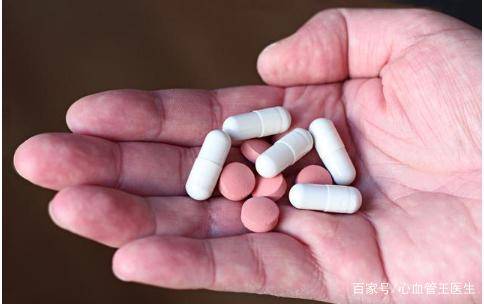Before the holiday, there was a patient who was advised during the company physical examination that he had aortic sclerosis. He bought statins, saying it could stabilize plaques, prevent thrombosis, and prevent cardiovascular and cerebrovascular diseases.
But his wife often reads my popular science articles, knowing that all medicines should not be taken casually, especially essential therapeutic drugs. So, she brought him to me and asked if he should take statins.
I said: For simple aortic sclerosis, definitely no need to take statins. On the one hand, aortic sclerosis is common with age, like our white hair. On the other hand, statins have significant side effects. They should not be taken casually and must be evaluated by a doctor based on specific blood lipids and cardiovascular risk to determine if statins are necessary!
Statins are not a specific drug but a large category of drugs. The most commonly used include:
– First-generation: lovastatin, simvastatin, pravastatin;
– Second-generation: fluvastatin;
– Third-generation: atorvastatin, rosuvastatin, and pitavastatin.
So, when should statins be used? And which one should be chosen?
First, we need to understand the main purposes of statins:
1. Regulating blood lipids:
They can reduce cholesterol, lower low-density lipoprotein, decrease triglycerides, and increase high-density lipoprotein.
High-density lipoprotein can reduce vascular garbage, which is beneficial for preventing cardiovascular and cerebrovascular diseases. Cholesterol and low-density lipoprotein are creators of vascular trash and major culprits of cardiovascular and cerebrovascular diseases. Statins can also reduce triglycerides; in other words, they can reduce harmful blood lipids in the body and increase good blood lipids. This helps reduce vascular debris and control the exacerbation of atherosclerosis, thereby managing cardiovascular diseases.
2. Anti-inflammatory plaque stabilization:
An important effect is anti-inflammatory plaque stabilization. A significant cause of cardiovascular diseases is atherosclerosis, where an increase in low-density lipoprotein results in more vascular debris, exacerbating atherosclerosis. Another reason for cardiovascular diseases is inflammation; when blood vessel walls are inflamed, it can worsen atherosclerosis. Statins can combat inflammation, thereby preventing cardiovascular diseases. Additionally, after plaques rupture, clots can form, leading to conditions like myocardial infarction or stroke. Statins can stabilize plaques, prevent their worsening, and avoid ruptures to prevent thrombosis, effectively preventing heart attacks and strokes.
Understanding the functions of statins helps us determine when to use them:
1. Cases where it is unequivocally necessary to take statins:
As statins have anti-inflammatory properties and can stabilize plaques, all ischemic cardiovascular diseases should be treated with statins, regardless of blood lipid levels. Conditions such as coronary heart disease, angina, myocardial infarction, coronary stents, cardiac bypass surgery, severe carotid artery plaques, strokes, or severe peripheral artery stenosis should all be treated with statins. Using statins in these cases not only lowers blood lipids but also stabilizes plaques, preventing cardiovascular debris accumulation, plaque worsening, rupture, and thrombosis, thus preventing the exacerbation of various cardiovascular diseases. These individuals should take statins without question, unless there are allergies or severe side effects.
The effectiveness of statins in these individuals should be assessed based on low-density lipoprotein levels, which should be below 1.8.
2. Another group without existing cardiovascular diseases but with abnormal blood lipids:
Not everyone with high blood lipids should take statins:
– Increased high-density lipoprotein is beneficial, so those with high levels need not take statins, as statins aim to elevate high-density lipoprotein.
– If triglycerides are solely elevated, statins are not the first choice. For triglyceride reduction, fibrates are preferred over statins.
– The decision to take statins depends primarily on low-density lipoprotein levels:
– Different individuals have different target levels for low-density lipoprotein. If lifestyle changes can bring low-density lipoprotein to target levels, medication may not be necessary. However, if lifestyle changes do not suffice, statins must be used to achieve target low-density lipoprotein levels.
For the general population without abnormal blood pressure, blood sugar, or existing cardiovascular diseases, normal low-density lipoprotein cholesterol levels are below 3.4 mmol/L. Medication is considered only if levels are not within the standard range, particularly when low-density lipoprotein is higher than 4.9, statins may be initiated to reduce lipid levels.
Individuals with conditions such as hypertension or diabetes, obesity, smoking, family history of cardiovascular diseases, or low high-density lipoprotein below 1.04 should aim to lower low-density lipoprotein to below 2.6 mmol/L. In cases where healthy lifestyle changes do not suffice, statins can assist in achieving the target low-density lipoprotein levels.
Specifically:
– People with diabetes,
– Those with stages 3 and 4 chronic kidney disease,
– Individuals with hypertension and obesity,
– Those with hypertension and men over 45 or women over 55,
– Individuals with hypertension and a family history of cardiovascular diseases,
– People with hypertension and who smoke or have low high-density lipoprotein below 1.04,
In these scenarios, efforts should be made to lower low-density lipoprotein to below 2.6. If lifestyle changes are insufficient, statins should be taken. Lastly, before taking statins, it is crucial to check low-density lipoprotein levels to determine efficacy and potential side effects, and monitor liver function, creatine kinase, and blood sugar levels.


